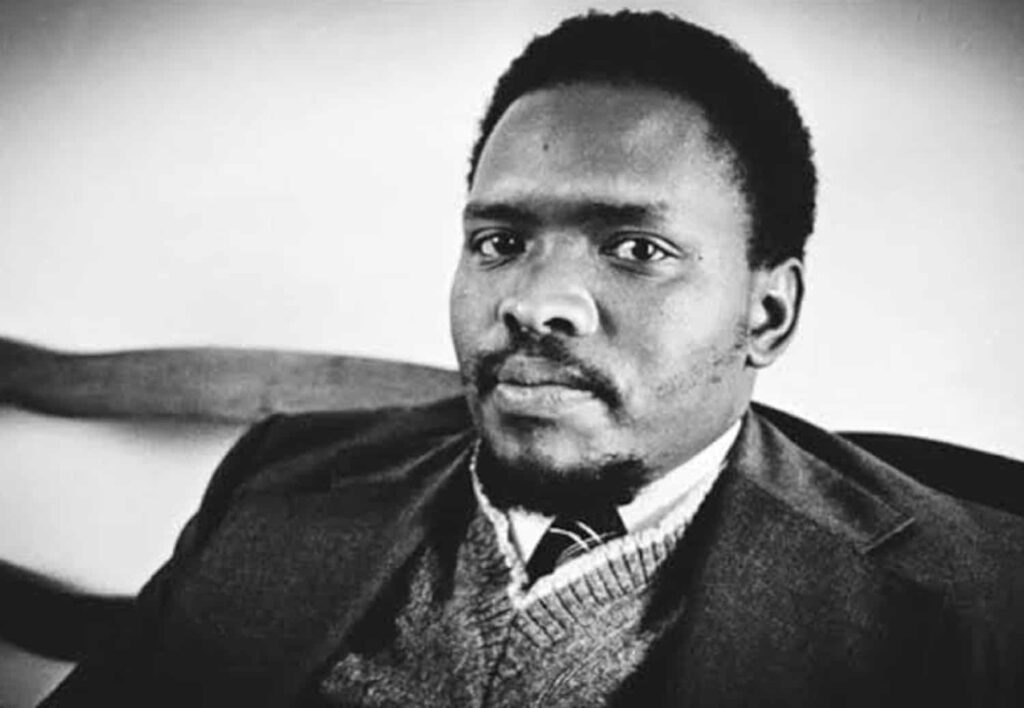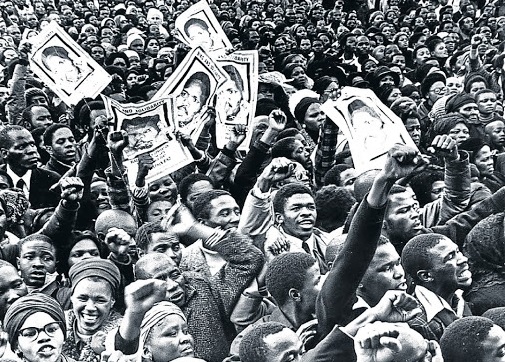Black Consciousness Movement Grade 12 Essay:
Quick Facts to Consider Before Writing an Essay on Black Consciousness Movement:
- Founded by Steve Biko: The Black Consciousness Movement (BCM) was founded by Steve Biko in the late 1960s to promote black pride and unity in South Africa.
- Response to Apartheid: The BCM emerged as a response to the apartheid regime’s policies of racial segregation and the suppression of black political activism.
- Philosophy of Self-Emancipation: Central to the BCM’s philosophy was the idea that black South Africans needed to emancipate themselves psychologically before seeking physical liberation from apartheid.
- SASO: The movement started with the formation of the South African Students’ Organization (SASO) in 1968, focusing initially on black universities and colleges.
- Black Community Programs: BCM activists initiated community programs aimed at improving education, health, and economic conditions in black communities.
- Banned in 1977: The South African government banned the BCM and related organizations in 1977, following the Soweto Uprising.
- Soweto Uprising 1976: The BCM played a significant role in inspiring the Soweto Uprising, where thousands of black students protested against the apartheid education system.
- Death of Steve Biko: Steve Biko died in police custody in 1977, becoming a martyr for the anti-apartheid movement and bringing international attention to the cause.
- Focus on Black Identity: The BCM promoted a strong sense of black identity, encouraging self-reliance and pride among black South Africans.
- Opposition to White Liberalism: Biko and the BCM were critical of white liberalism, arguing that it perpetuated black dependency and hindered genuine liberation.
- Influence on Music and Art: The movement influenced South African music and art, fostering a culture of resistance that expressed the struggles and aspirations of black South Africans.
- Global Impact: The ideas and activism of the BCM influenced anti-racism movements worldwide, including the civil rights movement in the United States.
- Revival of Black Activism: The BCM revitalized black political activism in South Africa during a period when other anti-apartheid organizations were banned and suppressed.
- Continued Relevance: The principles and ideals of the BCM continue to influence South African society and politics in the post-apartheid era.
- Legacy of Empowerment: The BCM left a lasting legacy of empowerment, teaching future generations the importance of self-awareness, identity, and unity in the struggle for justice and equality.
The Black Consciousness Movement (BCM) represents a pivotal chapter in South Africa’s history, particularly in the struggle against apartheid. Spearheaded by Steve Biko in the late 1960s and early 1970s, the BCM sought to empower black South Africans and dismantle the psychological chains of apartheid. This essay delves into the origins, key philosophies, and impacts of the BCM, shedding light on its enduring legacy in South Africa’s journey towards freedom and equality.
Origins of the Black Consciousness Movement
The BCM emerged in a period of intense political repression in South Africa. Following the Sharpeville Massacre in 1960 and the subsequent banning of major anti-apartheid organizations like the African National Congress (ANC) and the Pan Africanist Congress (PAC), the anti-apartheid struggle faced a significant vacuum. It was within this context that the BCM arose, initially as a movement focusing on the liberation of the black psyche from the shackles of racial inferiority imposed by apartheid ideology.
Key Philosophies of the BCM
Central to the BCM was the belief that before physical liberation, black South Africans needed to be liberated from the inferiority complex instilled by apartheid. Steve Biko, the most prominent figure of the BCM, advocated for a strong sense of black identity and self-reliance. According to Biko, “Black Consciousness is an attitude of the mind and a way of life, the most positive call to emanate from the black world for a long time.”

The BCM emphasized the importance of black people defining their own identity and destiny, free from the perceptions and constraints imposed by a white-dominated society. It aimed to foster a sense of pride, self-worth, and unity among black South Africans, encouraging them to become their own liberators.
Impact and Legacy
The BCM had a profound impact on South Africa’s socio-political landscape. Its emphasis on black pride and unity inspired a new generation of activists and played a crucial role in revitalizing the anti-apartheid struggle during the 1970s. The movement’s influence was notably evident in the Soweto Uprising of 1976, where thousands of black students, motivated by the principles of the BCM, protested against the compulsory use of Afrikaans in schools. This event marked a significant turning point in the struggle against apartheid, highlighting the power and resilience of South Africa’s youth.
Tragically, the apartheid regime brutally suppressed the BCM, and in 1977, Steve Biko died in police custody, becoming a martyr for the cause. Despite this, the ideas of the BCM continued to inspire resistance against apartheid, both within South Africa and internationally.
The legacy of the BCM extends beyond the apartheid era. It contributed significantly to the development of black South African identity and has continued to influence post-apartheid South Africa in the realms of politics, culture, and education. The movement’s emphasis on pride, unity, and self-determination remains relevant as the country continues to navigate the challenges of inequality and national reconciliation.
Conclusion
The Black Consciousness Movement stands as a testament to the power of self-awareness and unity in the face of systemic oppression. By empowering black South Africans to reclaim their identity and dignity, the BCM played a crucial role in the broader struggle against apartheid. Its legacy, epitomized by the life and work of Steve Biko, continues to inspire future generations to strive for a society characterized by equality, justice, and mutual respect. As South Africa moves forward, the principles of the BCM serve as a reminder of the importance of consciousness, identity, and the indomitable spirit of resistance in the pursuit of true liberation.
Looking for something specific?
Did You See These?
- Group Areas Act Essay – Grade 9
- Effects of Group Areas Act on Black People of South Africa
- History Grade 12 Exam Question Papers and Memos PDF Download
- 10 Important Things Nelson Mandela did to Build Democracy with Example and Facts
- How Many Apartheid Laws Were There in South Africa?
- 10 Differences Between San and Khoikhoi
- 7 Characteristics of Traditional Societies
- 25 Questions and Answers Based on Bantu Education Act

